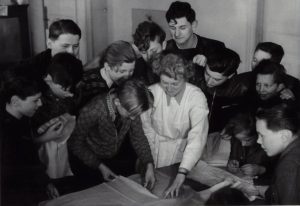Enhancing Logical Reasoning: Tools and Techniques for Clearer Thinking and Better Problem Solving
Logical reasoning is the systematic process of using rational steps and mathematical principles to draw conclusions from given statements. This essential skill enables individuals to make informed decisions, solve problems, and think critically in daily life. It encompasses the ability to analyze situations, think clearly, and form sound judgments based on evidence and reasoning.
Logical reasoning is a fundamental aspect of human cognition and plays a crucial role in various fields, including mathematics, science, philosophy, and business. Beyond decision-making based on facts and evidence, logical reasoning involves understanding the underlying principles governing the world around us. It requires the ability to recognize patterns, identify relationships between different pieces of information, and draw valid conclusions.
Developing logical reasoning skills can enhance an individual’s problem-solving abilities, decision-making processes, and critical thinking capabilities. In today’s complex and fast-paced world, the ability to think logically and critically is increasingly important. This skill can be improved through practice and the application of specific tools and techniques.
Key Takeaways
- Logical reasoning is the process of using rational and critical thinking to analyze and evaluate information in order to make sound decisions.
- Clear thinking and problem solving are essential skills that can be honed through logical reasoning, leading to better decision-making and problem-solving abilities.
- Tools for enhancing logical reasoning include techniques such as deductive and inductive reasoning, as well as critical thinking skills and argument analysis.
- Techniques for clearer thinking involve identifying and avoiding common logical fallacies, as well as improving cognitive biases and decision-making processes.
- Strategies for better problem solving include breaking down complex problems into smaller, more manageable parts, as well as using tools such as decision trees and problem-solving frameworks.
- Implementing logical reasoning in daily life can lead to better decision-making in various areas such as personal finance, career choices, and interpersonal relationships.
The Importance of Clear Thinking and Problem Solving
The Benefits of Clear Thinking
By thinking clearly, individuals can make better choices, communicate more effectively, and achieve their goals more efficiently. This is because clear thinking allows individuals to avoid common cognitive biases and logical fallacies that can lead to flawed reasoning and poor decision-making.
Problem-Solving: A Crucial Aspect of Logical Reasoning
Problem-solving is another essential aspect of logical reasoning. It involves identifying problems, gathering relevant information, generating potential solutions, and evaluating their effectiveness. Effective problem-solving requires clear thinking, creativity, and the ability to think critically about different options.
Achieving Success through Effective Problem-Solving
By developing strong problem-solving skills, individuals can overcome challenges, make informed decisions, and achieve success in various areas of their lives. Whether it’s in the workplace, at home, or in personal relationships, the ability to solve problems effectively is a valuable skill that can lead to greater success and fulfillment.
Tools for Enhancing Logical Reasoning

There are several tools and techniques that can help individuals enhance their logical reasoning skills. One of the most important tools for enhancing logical reasoning is critical thinking. Critical thinking involves the ability to analyze information, evaluate arguments, and make reasoned judgments.
It allows individuals to question assumptions, consider alternative viewpoints, and make informed decisions based on evidence and reasoning. By developing critical thinking skills, individuals can become more effective problem solvers and better decision-makers. Another important tool for enhancing logical reasoning is deductive reasoning.
Deductive reasoning involves drawing specific conclusions from general principles or premises. It is a fundamental aspect of logical reasoning and is used in mathematics, science, and philosophy. By developing deductive reasoning skills, individuals can become more effective at drawing valid conclusions from given information and making sound judgments based on logical principles.
Techniques for Clearer Thinking
There are several techniques that can help individuals think more clearly and improve their logical reasoning skills. One technique is to break down complex problems into smaller, more manageable parts. By breaking down a problem into smaller components, individuals can analyze each part separately and identify potential solutions more effectively.
This approach can help individuals avoid feeling overwhelmed by complex problems and make it easier to identify key issues and potential solutions. Another technique for clearer thinking is to consider alternative viewpoints and perspectives. By considering different viewpoints, individuals can gain a more comprehensive understanding of a problem or situation and make more informed decisions.
This approach can help individuals avoid cognitive biases and make more objective judgments based on evidence and reasoning.
Strategies for Better Problem Solving
There are several strategies that can help individuals improve their problem-solving skills. One strategy is to use a systematic approach to problem-solving. This involves identifying the problem, gathering relevant information, generating potential solutions, evaluating their effectiveness, and implementing the best solution.
By using a systematic approach, individuals can avoid jumping to conclusions or making hasty decisions and instead make informed choices based on evidence and reasoning. Another strategy for better problem-solving is to think creatively about potential solutions. Creativity can help individuals generate innovative ideas and think outside the box when faced with challenging problems.
By thinking creatively, individuals can come up with new approaches to problem-solving and find unique solutions that may not be immediately obvious.
Practical Applications of Logical Reasoning

Professional Applications
In the workplace, logical reasoning is vital for making informed decisions, solving complex problems, and communicating effectively with others. It is also essential for success in fields such as mathematics, science, engineering, and computer programming, where logical reasoning is used to analyze data, solve equations, and develop new technologies.
Personal Relationships
In personal relationships, logical reasoning can help individuals make better choices, resolve conflicts, and communicate more effectively with others. By thinking logically and critically about different situations, individuals can avoid misunderstandings and make more informed decisions that lead to positive outcomes.
Improved Decision-Making
Logical reasoning enables individuals to evaluate information, identify patterns, and make sound judgments. This leads to better decision-making, as individuals can separate facts from opinions, and consider multiple perspectives before making a decision.
Implementing Logical Reasoning in Daily Life
In conclusion, logical reasoning is an essential skill that can help individuals make informed decisions, solve problems effectively, and think critically about different situations. By developing strong logical reasoning skills and using specific tools and techniques, individuals can enhance their ability to think clearly, analyze information, and make sound judgments based on evidence and reasoning. Logical reasoning has practical applications in various areas of life, including the workplace, personal relationships, and academic pursuits.
By implementing logical reasoning in daily life, individuals can improve their problem-solving skills, make better choices, and achieve greater success in their endeavors.
FAQs
What is logical reasoning?
Logical reasoning is the process of using rational and systematic thinking to analyze and evaluate information, arguments, and situations in order to make sound decisions and solve problems.
Why is logical reasoning important?
Logical reasoning is important because it helps individuals think critically, make informed decisions, and solve complex problems in a clear and systematic manner. It is a fundamental skill for success in various aspects of life, including academics, professional work, and everyday decision-making.
What are some tools for enhancing logical reasoning?
Some tools for enhancing logical reasoning include critical thinking exercises, puzzles and games, formal logic systems, decision-making frameworks, and cognitive bias awareness. These tools can help individuals develop their analytical skills, improve their problem-solving abilities, and make more rational decisions.
What are some techniques for improving logical reasoning?
Some techniques for improving logical reasoning include practicing active listening, asking probing questions, evaluating evidence and arguments, identifying and avoiding logical fallacies, and seeking out diverse perspectives. These techniques can help individuals develop a more rational and evidence-based approach to thinking and decision-making.
How can logical reasoning be applied in everyday life?
Logical reasoning can be applied in everyday life by using it to evaluate information and arguments, make decisions based on evidence and reason, solve problems in a systematic manner, and communicate ideas and opinions in a clear and logical way. It can also be used to identify and address cognitive biases and faulty reasoning in oneself and others.













Post Comment